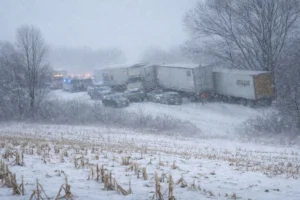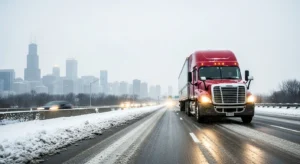This work stoppage impacts a broad ecosystem of companies related to trade and marine insurance.
The International Longshoremen’s Association (ILA) began a strike on October 1 due to a lack of agreement with terminal operators and shipping lines, represented by the United States Maritime Alliance. This labor stoppage has halted container, and vehicle imports just as the retail holiday shopping season is beginning.
Among the affected products are essential medicines, clothing, and fresh fruits and vegetables from foreign markets, which will remain stranded at ports until the strike ends. As a result, importers in the United States are facing a complicated situation, as they may encounter difficulties in filing insurance claims for delayed or damaged goods during the strike at the country’s ports.
Jeffery Kaufmann, Executive Vice President and Head of Marine at MSIG USA, explained that most cargo policies do not include coverage for delays. According to data shared by FreightWaves, Kaufmann points out that policies often include a clause for strikes, riots, and civil commotion (SRCC), which covers damage from vandalism or sabotage. However, there are exclusions for damage caused by temperature, humidity, and other factors related to power outages or labor shortages.

Navigating marine insurance policies in the port strike
This labor stoppage is affecting a wide ecosystem of businesses related to maritime trade. Although the duration of the strike does not directly impact the coverage of marine insurance policies, insurers are particularly concerned about the accumulation of cargo at ports, which poses additional risks. According to the information disclosed by FreightWaves, Kaufmann highlights the importance of the Accumulation Clause in marine insurance policies, which can double the liability limit in situations where large quantities of goods are stranded in one place for extended periods.
Large transportation companies typically have more resources and logistical networks that allow them to find alternative routes for their shipments during such disruptions. This gives them a significant advantage over smaller companies, which may be forced to rely on intermediaries or logistics agents to manage the situation. Additionally, when shipments from several carriers are consolidated into a single container, the claims process for damages or losses becomes more complex, and adjusters must refer to the relevant transport documents to properly classify the losses and assign liabilities, potentially causing further delays in claim resolution.
Finally, when the ports become operational again, it is likely that foreign manufacturers will attempt to quickly send large volumes of products that have been held up during the strike. Insurers anticipate an increase in requests for higher limits on transportation policies, as companies seek to protect themselves against additional economic losses arising from this situation.

Miles of love: stories of truckers and their four-legged co-pilots
The love between truckers and their pets is a strong bond, and these stories will surely warm your soul. Love manifests itself in many ways,

Cargo theft report 2025: $725 million in losses
Verisk CargoNet reports that cargo theft crime volumes remained stable, with a sharp increase in total losses. Verisk CargoNet’s 2025 report stated that the total

Ground and Air Transportation Brace for a Weekend of Cancellations and Delays
A historic cold wave is set to disrupt ground and air transportation across the United States, bringing cancellations, delays, and operational restrictions to highways, airports, and essential services throughout the weekend. Federal authorities have activated emergency plans in response to a major winter storm expected to deliver snow, ice, and extreme temperatures to large portions of the country.

Geopolitical tensions and the dispute between Trump and the Federal Reserve
The United States is going through a complex geopolitical environment along with internal tensions between President Donald Trump and the Federal Reserve. In the latest

Polar Vortex Puts U.S. Roads on Alert
A powerful polar vortex outbreak is triggering a widespread winter storm across the United States, bringing snow, ice, and extreme cold to major freight corridors. The event poses a serious risk to trucking operations, road safety, delivery schedules, and commercial vehicle insurance exposure.

DOT unveils possible AI strategy to enforce CDL regulations
The DOT is looking to adopt AI and advanced data analytics to improve the accuracy and effectiveness of enforcement measures. On January 14, the 105th
